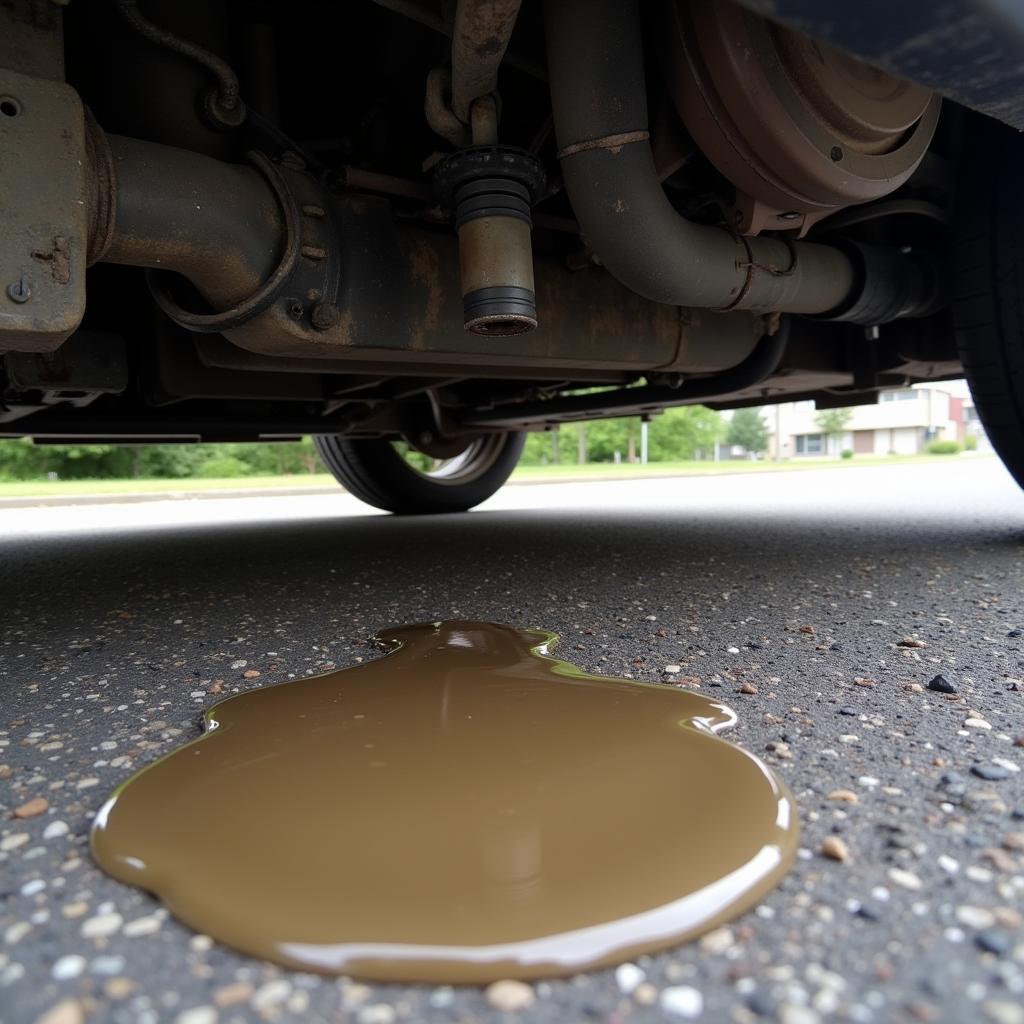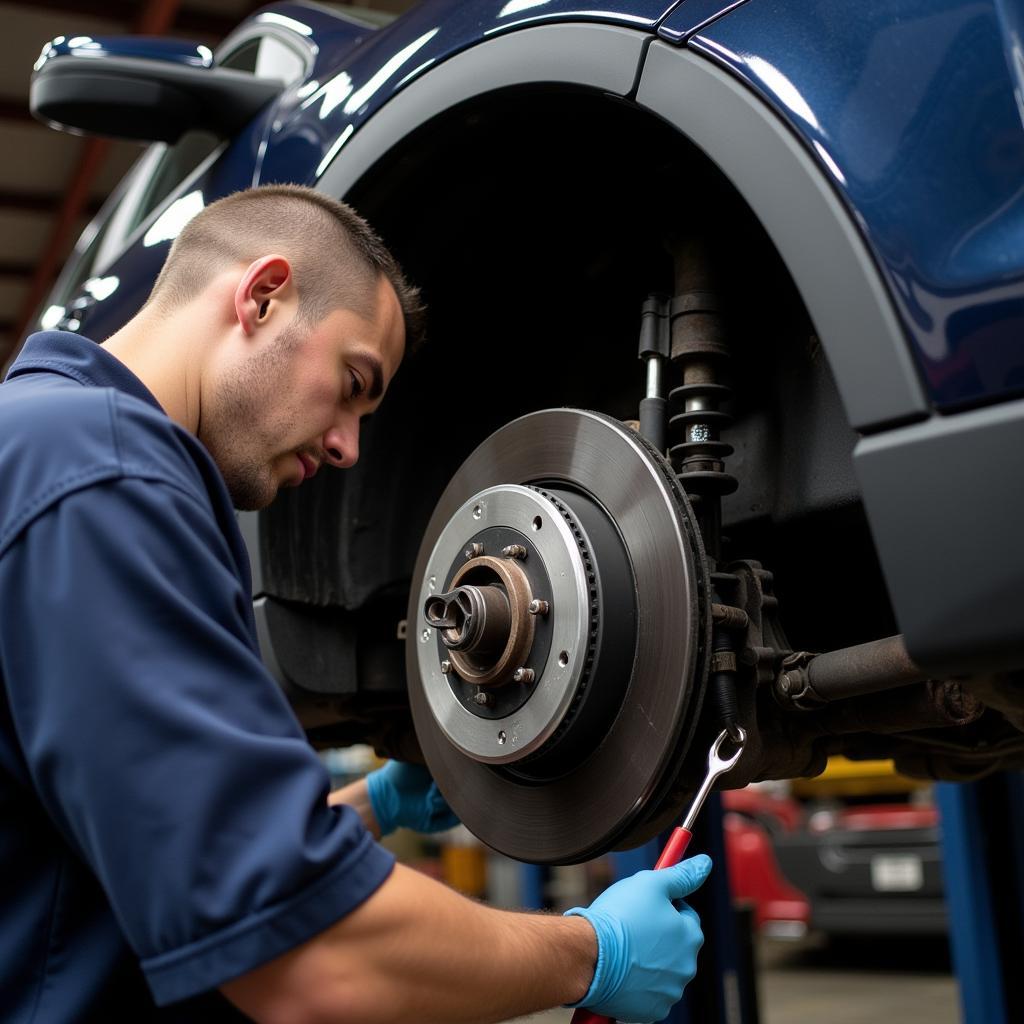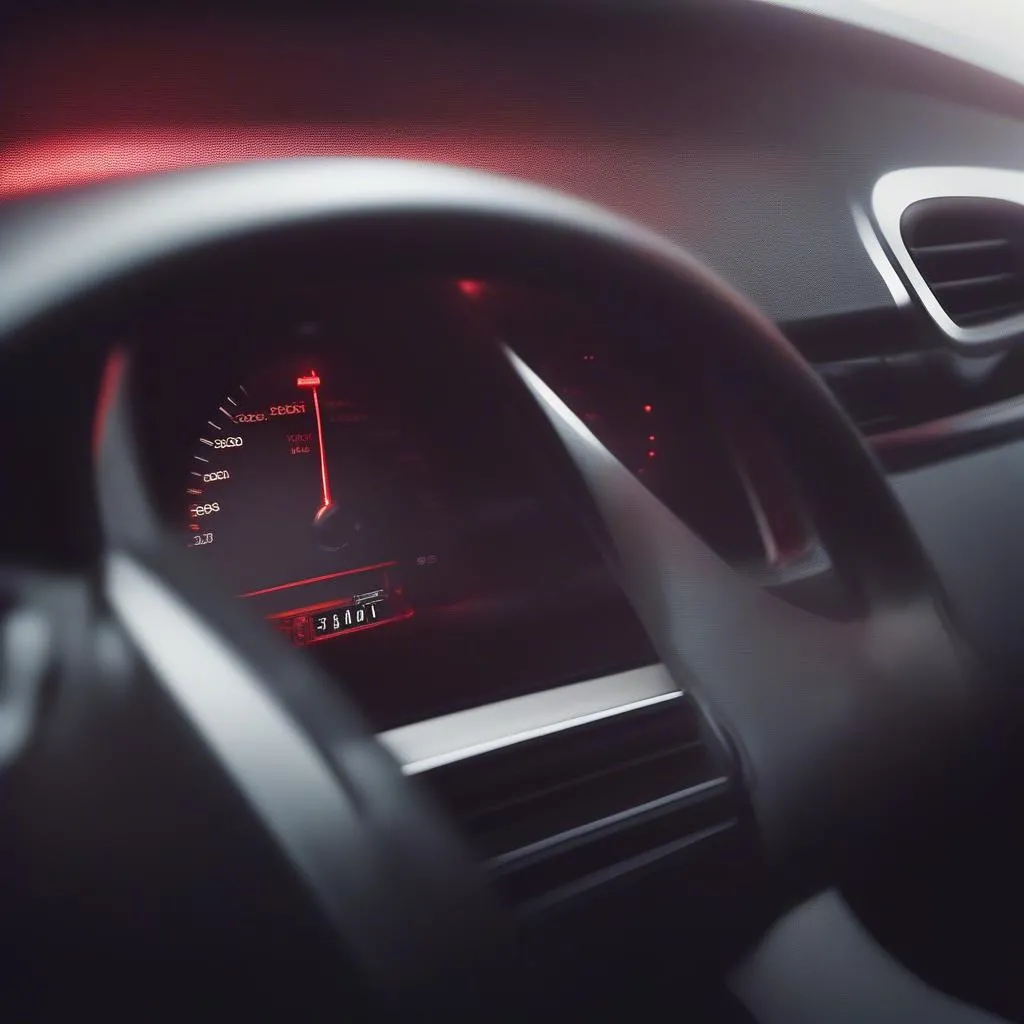Experiencing sudden brake failure is a terrifying situation no driver wants to imagine. One minute you’re cruising along, the next you’re pressing the brake pedal with all your might, only to find it goes straight to the floor. If your brakes failed with no warning, understanding the potential causes and knowing how to react can be lifesaving.
Why Did My Brakes Fail With No Warning?
While modern vehicles are designed with redundant braking systems, various factors can lead to sudden brake failure. Here are some of the most common culprits:
- Brake Fluid Leak: Brake fluid is the lifeblood of your braking system, transmitting the force from your foot to the brake pads. A leak anywhere in the system can drastically reduce braking power, leading to failure.
- Worn Brake Pads: Brake pads are designed to wear down over time. If they wear too thin, you’ll experience significantly reduced braking performance and may hear a grinding noise when applying the brakes.
- Master Cylinder Failure: The master cylinder is responsible for pressurizing the brake fluid. If it fails, you may experience a soft or spongy brake pedal or complete brake failure.
- Damaged Brake Lines: Brake lines carry brake fluid from the master cylinder to the wheels. Corrosion, physical damage, or a faulty installation can cause leaks or ruptures, leading to brake failure.
- ABS Module Malfunction: While rare, a malfunctioning Anti-lock Braking System (ABS) module can interfere with normal braking operation, potentially causing unexpected issues.
 Brake Fluid Leak Under Car
Brake Fluid Leak Under Car
What to Do If Your Brakes Fail
Sudden brake failure is a high-pressure situation, but staying calm and taking immediate action can prevent a serious accident. Follow these steps:
- Don’t Panic: Easier said than done, but staying calm will help you think clearly and react appropriately.
- Pump the Brakes: Quickly pump the brake pedal several times. This can help build up pressure in the braking system if a leak is present.
- Downshift: If pumping the brakes fails, shift into a lower gear (or use the “L” gear in an automatic). This will help slow the vehicle using engine braking.
- Engage the Parking Brake: Gradually apply the parking brake, but be careful not to engage it abruptly, which could cause the rear wheels to lock up and skid.
- Steer to Safety: While navigating the situation, remain aware of your surroundings and steer your vehicle away from traffic, obstacles, and pedestrians. Aim for a clear area or an uphill slope if possible.
- Honk Your Horn: Warn other drivers and pedestrians of your situation by honking your horn and flashing your hazard lights.
- Once Stopped, Seek Help: Once you’ve safely brought your vehicle to a complete stop, do not attempt to drive it further. Call for roadside assistance or a tow truck to transport your vehicle to a qualified mechanic.
 Driver Downshifting During Brake Failure
Driver Downshifting During Brake Failure
Can Remote Diagnostics Help With Brake Failure?
While remote diagnostics and software solutions have revolutionized modern car repair, they are not a substitute for immediate mechanical attention when it comes to brake failure. Remote diagnostics can be incredibly valuable for identifying potential issues before they become critical, such as:
- Monitoring Brake Pad Wear: Some vehicles allow remote monitoring of brake pad thickness, alerting you when it’s time for a replacement.
- Detecting ABS Issues: Remote diagnostics can often identify faults within the ABS system, prompting you to seek service before a complete failure occurs.
- Analyzing Warning Lights: If your ABS or brake warning light is illuminated, remote diagnostics can often pinpoint the cause and recommend the necessary course of action.
your anti-lock brakes warning light stays on you should facebook
It’s crucial to remember that even if your vehicle is equipped with remote diagnostics, any indication of brake problems should be taken seriously and addressed by a qualified mechanic immediately.
“Remote diagnostics are a fantastic tool for preventative maintenance,” says John Smith, Senior Automotive Engineer at XYZ Automotive, “but when it comes to brakes, nothing replaces a thorough inspection by a trained professional.”
 Mechanic Inspecting Car Brakes
Mechanic Inspecting Car Brakes
Preventing Brake Failure: Proactive Measures
The best way to avoid the fear and danger of brake failure is through regular maintenance and proactive care:
- Regular Brake Inspections: Have your brakes inspected at least once a year or every 12,000 miles by a qualified mechanic.
- Timely Brake Pad Replacement: Don’t ignore the signs of worn brake pads, such as squealing, grinding, or a vibrating brake pedal.
- Heed Warning Lights: Never ignore illuminated warning lights on your dashboard, especially those related to your braking system (ABS, brake warning light).
- Quality Brake Fluid: Ensure your mechanic uses high-quality brake fluid and follows the manufacturer’s recommended replacement intervals.
- Listen to Your Car: Be attentive to any changes in brake pedal feel, unusual noises when braking, or a decrease in braking performance.
By following these preventative measures and addressing any concerns promptly, you can significantly reduce the risk of experiencing sudden brake failure.
Conclusion
Experiencing brake failure can be terrifying, but understanding the causes, knowing how to react, and prioritizing preventative maintenance can help you stay safe on the road. Remember, your brakes are your vehicle’s most critical safety system – never compromise on their care.

